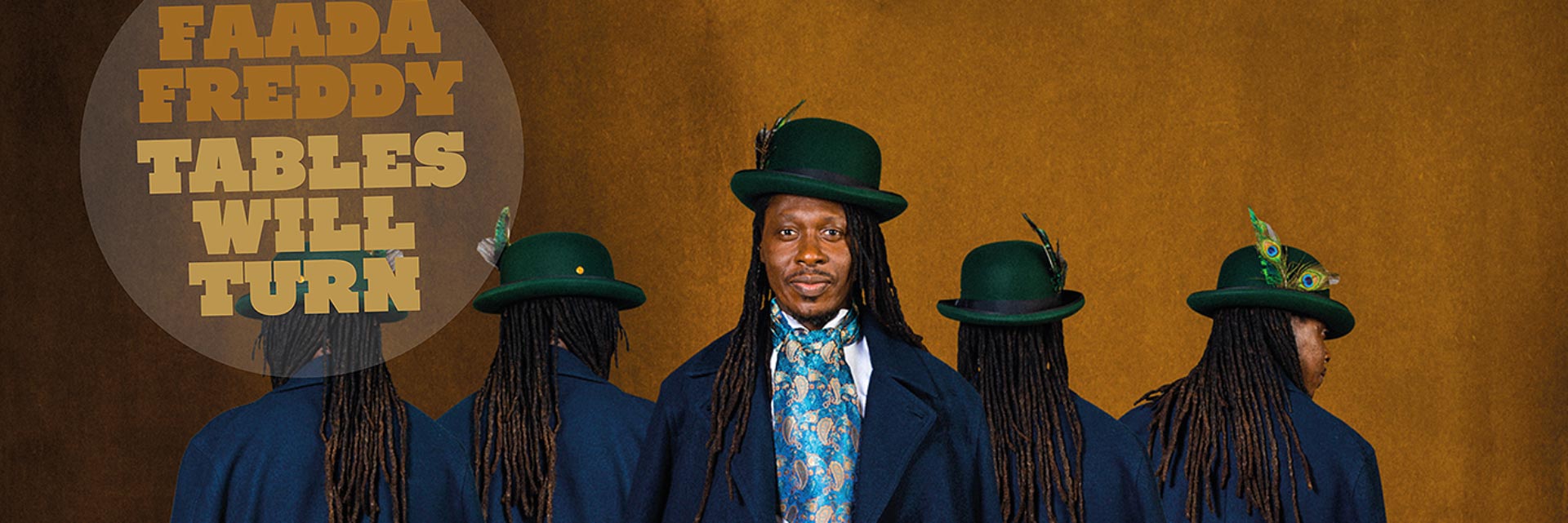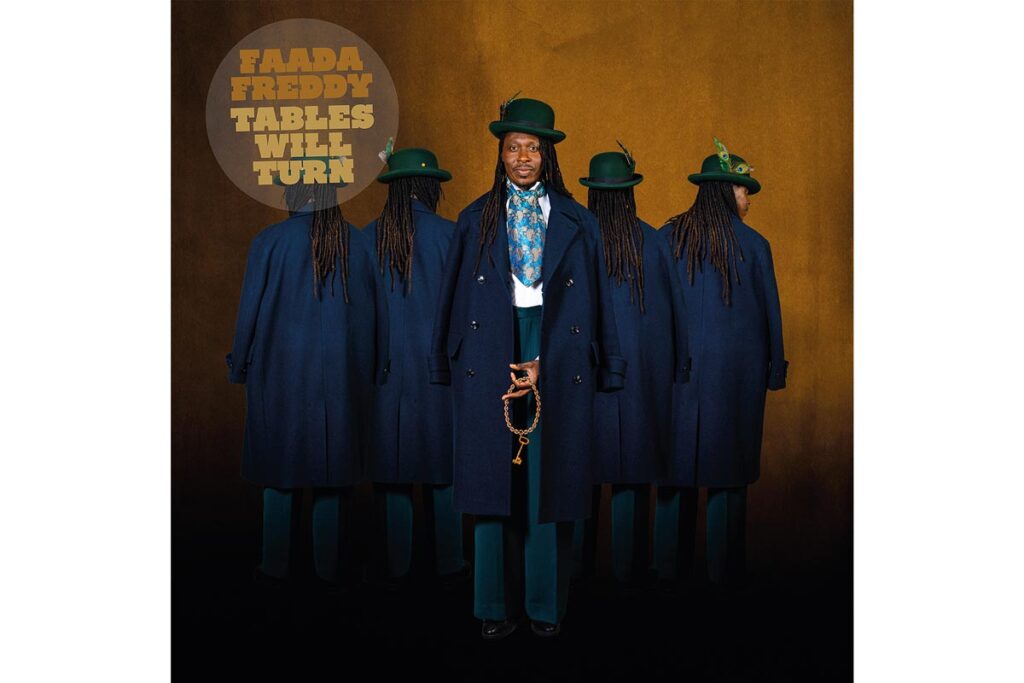Coins ring, are weighed in the hand and thrown onto a metal plate or similar. One of the coins spins on its edge. It moves from left to right and back again between the loudspeakers – or optionally between the headphone-covered ears – until it comes to rest with a distinctive coin-on-tin sound.
This is how the album Tables Will Turn by Senegalese-French a cappella artist Faada Freddy begins. There is initially no time to appreciate this little surround sound trick in the intro to the first song ‘Golden Cages’. Tenor voices start a rhythm beat reminiscent of a jew’s harp. Then comes the rich bass broadside that characterizes this album right up to the last note. The opening song now picks up speed: Bass and baritone voices from the five-piece ensemble kick in, flanked by precise beatboxing, with the musicians’ hands tapping on their own chests as they sing, providing dominant percussion elements in close proximity to the recording microphones – a kind of analog drum-and-bass foundation created purely with voice and hands on the body. Faada Freddy himself then dances into the acoustic picture: his powerful blues and soul organ unfolds, opening up “Golden Cages” towards the chorus. A gospel choir joins in with an offbeat rhythm. From the initial coin toss to the almost pop finale, the individual soundtracks combine to form a compact, absolutely groovy work of art. And that was just the first song.
Tables Will Turn is Faada Freddy’s second album after his debut Gospel Journey, which was released in 2016. It was a sensation at the time, even reaching high chart positions in France. An a cappella album that fused old-school soul and gospel songs with Afrobeats and subtle reggae influences to create a unique, post-modern chanson. Faada Freddy had already made a name for himself in Senegal in the 1990s as one half of the rap duo Daara J, who presented their critical lyrics in the Senegalese Wolof dialect. But his love of northern hemisphere soul was sparked early on. As a child, Freddy sang along to Motown records, built instruments out of oil cans and tin cans, but preferred to drum on his own body like a beatbox. He learned to rap with an old cassette tape of Grandmaster Flash’s “The Message” – and discovered his love for gospel in the second half of his life.
His second album may only be short, but it resonates for a long time. It was produced with a gentle but significantly experienced hand. The work, which is carried exclusively by voices and hand-produced body sounds, seems to breathe on its own. Bass voices and beatbox rhythms surge through the room like the surf on the Senegalese or French Atlantic in the title track or the closing “Day To Day Struggle”. The album is mixed in an extremely archaic and at the same time powerful sound. The bass voice sounds more powerful and full-bodied than any electric bass line by Bootsy Collins. Every single voice can be identified in the gospel background choir, which is sometimes as playful as a cheerful group of elves. Fast passages alternate with quiet phases, touching blues, powerful soul and rapid rap interludes give each other the space and time they need.
Tables Will Turn is only available on vinyl or as a download. If you would like to test your high-end equipment with a CD by Faada Freddy, we recommend the first album, Gospel Journey. Here, too, ancient Mississippi church sounds are mixed with contemporary Afrobeat and modern R’n’B influences in sometimes hymn-like a cappella arrangements.
Faada Freddy – Tables Will Turn (2023)
Label: Think Zik!
Format: Vinyl/DL 16/44


